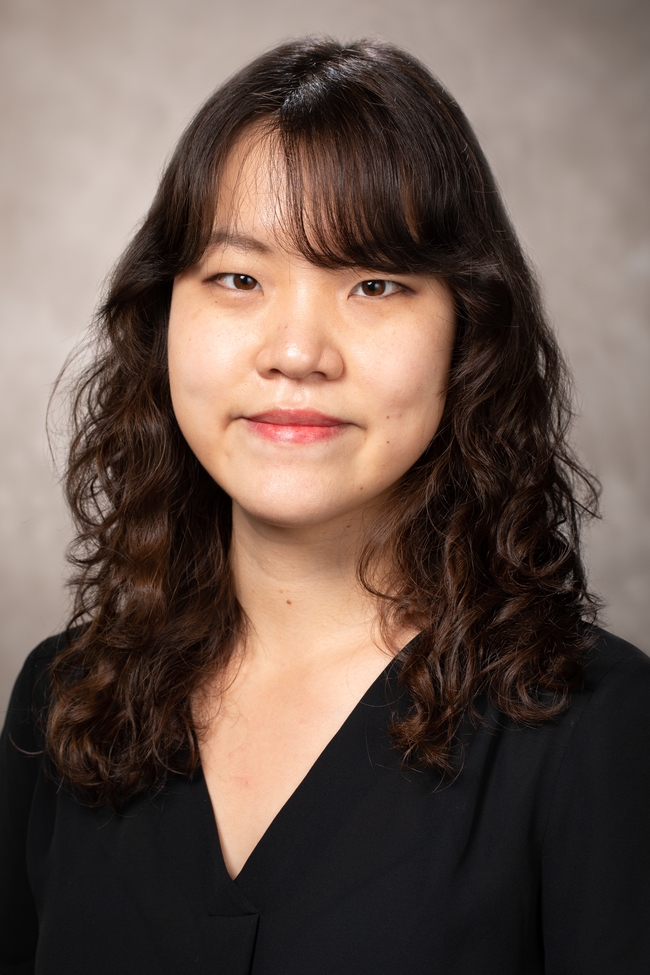A University of Arkansas biomedical engineering researcher has been awarded a grant to improve treatments for spinal cord injuries by developing a new drug delivery method using stem cells.
Young Hye Song, assistant professor of biomedical engineering, was awarded $100,000 from the PhRMA Foundation to pursue her work on a hydrogel that houses stem cells inside a nerve matrix, allowing the cells to live longer inside the body so they can spend more time healing a damaged spinal cord.
"Hydrogels are water-swollen gels," she said. "It's like Jell-O, but instead of sugar and food coloring, it contains the extracellular tissue matrix components found in your body." Previous studies have largely focused on placing cells directly into injury sites without the matrix to house them, Song said.
"Lots of cell transplantation therapies have been studied in the context of spinal cord repair, but because they are transplanted directly into a lesion site, the cells don't survive very well in that environment," she said. "By embedding them in the matrix hydrogels, the cells survive better and they can perform their regenerative actions for longer."
Song's drug delivery platform would allow for both the healing of damaged spinal cord tissue and the regeneration of axons by providing proteins to entice those cells to grow back.
Spinal cord injuries often result in significant impairments to daily life activities, and current treatment strategies focus on managing the condition versus healing it.
"The current strategies are mostly just pain managing — they're palliative in nature," she said. "The goal is for this platform to be more effective than what's currently available in the clinic, moving us one step closer to actual functional recovery."
Song said her proposed treatment has several advantages.
Delivering cells inside the hydrogel will prolong their survival and functionality, she said. The treatment is also designed to minimize pain for recipients.
"Because this is an injectable hydrogel, it can be delivered in a minimally invasive manner, which is easier on the individuals receiving the treatment" Song said. "The hydrogel synthesis also does not require a lot of harsh chemicals, so there won't be cytotoxic side effects, meaning it will also be easier on the stem cells. Stem cells also secrete factors that promote cellular regeneration, so the hope is this won't need repeated administrations."
Song said the platform has implications beyond spinal cord injuries, as well.
"Anybody with a debilitating neurological injury could ultimately benefit from this work," she said. "This platform can be tuned depending on the specific disease or injury, so it can potentially be applied to a lot of pathological or traumatic injuries, such as traumatic brain injuries or cartilage lesions."
Raj Rao, professor and department head of biomedical engineering, praised Song's work.
"I am extremely proud of Dr. Song for receiving this award to recreate key components of the microenvironment that surround our cells as part of a neural engineering approach to address spinal cord repair," he said. "Receipt of this grant demonstrates Dr. Song's commitment to developing novel patient-inspired translational solutions that has implications for debilitating neurological and neurodegenerative disorders."
About the College of Engineering:The University of Arkansas College of Engineering is the largest engineering program in the state of Arkansas. Over the past decade, the college has experienced unprecedented growth. Undergraduate enrollment has doubled since 2007, and total enrollment in the college is now over 4,000 students. The College of Engineering offers graduate and undergraduate degrees in nine engineering fields, as well as incorporating distance learning and interdisciplinary programs. Faculty in the college conduct research in many key areas, including electronics, energy, biomedical and healthcare engineering, materials science, transportation and logistics.
About the PhRMA Foundation: The mission of the PhRMA Foundation is to improve public heath by proactively investing in innovative research, education and value-driven health care. For more than 55 years, the foundation has been helping advance scientific research and innovation to benefit patients. Since its founding in 1965, it has distributed more than $99 million to support these efforts. The PhRMA Foundation accomplishes its mission by investing in three key areas: core programming, value assessment initiative and a new program under development in the use and application of Data and Technology in Health Care. The PhRMA Foundation's core programs of Drug Delivery, Drug Discovery, Health Outcomes Research and Translational Medicine encourage young scientists to pursue research as their career choice and assists in training the next generation of innovators. The PhRMA Foundation's emphasis on evidence-based research that determines the true value of medicines is supported by its Value Assessment Initiative. To learn more, please visit www.phrmafoundation.org.
Topics
Contacts
Nick DeMoss, director of communications
College of Engineering
479-575-5697, ndemoss@uark.edu
